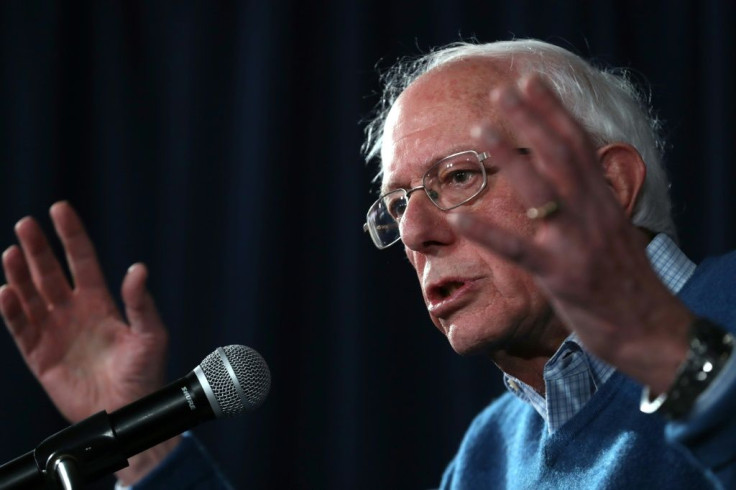Moderate Dems Prepared To Split Party To Stop Sanders Nomination

KEY POINTS
- Moderate Democrats believe a Sanders nomination will risk the House
- Both Republicans and Democrats have warned about socialism's lack of appeal
- Many superdelegates won't back Sanders even if he has the most delegates
As Sen. Bernie Sanders, I-Vt., continues to surge as the front runner for the Democratic presidential nomination, some moderate members of the party are worried that if he is picked, it may put certain congressional seats at risk this fall. Now it appears leading establishment Democrats are poised to overturn a Sanders victory if he fails to secure a delegate majority – even if it could mean fracturing the party.
Republicans in South Carolina have said that they welcome a Sanders presidential nomination. Republican South Carolina state Rep. Nancy Mace spoke with NBC News and said it would be “the best-case scenario for any Republican on the ballot.”
Mace is hoping to claim a seat in the House of Representatives from Democratic U.S. Rep. Joe Cunningham in November.
Mace, like other Republicans in the South, has seized on Sanders’ self-declaration as a democratic socialist. “There's a faction of people here who are really worried about this enthusiasm for socialism,” she said.
Republicans aren’t the only ones going after Sanders on this point. Cunningham, who is hoping to retain his House seat, has also said Sanders’ platform can’t appeal to voters in South Carolina.
Sanders’ fellow nomination contenders too have argued that if the Vermont senator gets the nomination, the party will suffer. Former New York City Mayor Michael Bloomberg warned that Sanders “will lose to [President] Donald Trump” and will cause the House to “all go red” at the recent debate in South Carolina.
Those with the power to stop Sanders seem to share these concerns and have said they are prepared to prevent his nomination. The New York Times recently spoke with 93 Democratic superdelegates – officials who will vote for their choice of nominee independent of the primary – most of whom have said they wouldn’t be willing to back Sanders if he fails to secure a majority of delegates, even if he has the most.
Such a move would prove particularly dangerous for the Democrats this fall, as it could potentially fracture the party. Doing so could serve to alienate Sanders’ dedicated support base – setting up a potential repeat of the 2016 presidential race which saw some spurned Sanders supporters opting to not back then-candidate Hillary Clinton.
If no candidate secures a majority of pledged delegates – votes allocated based on the results from states’ caucusing and primary voting – at the Democratic National Convention this July, then it will largely come down to the superdelegates to decide.
To win that majority, a candidate will need 1,991, or just over half, of the 3,979 delegates to be pledged to them.
© Copyright IBTimes 2025. All rights reserved.





















